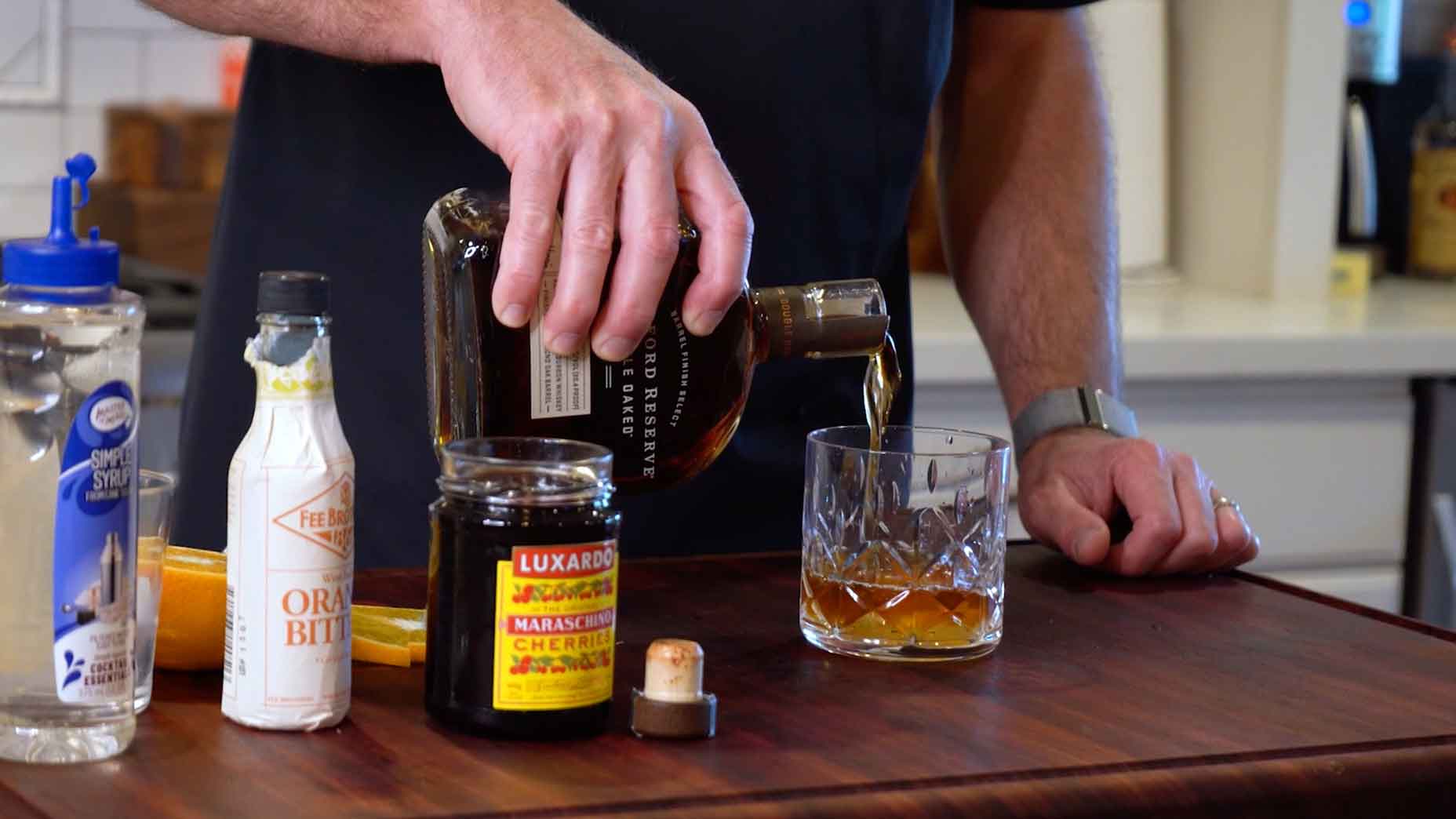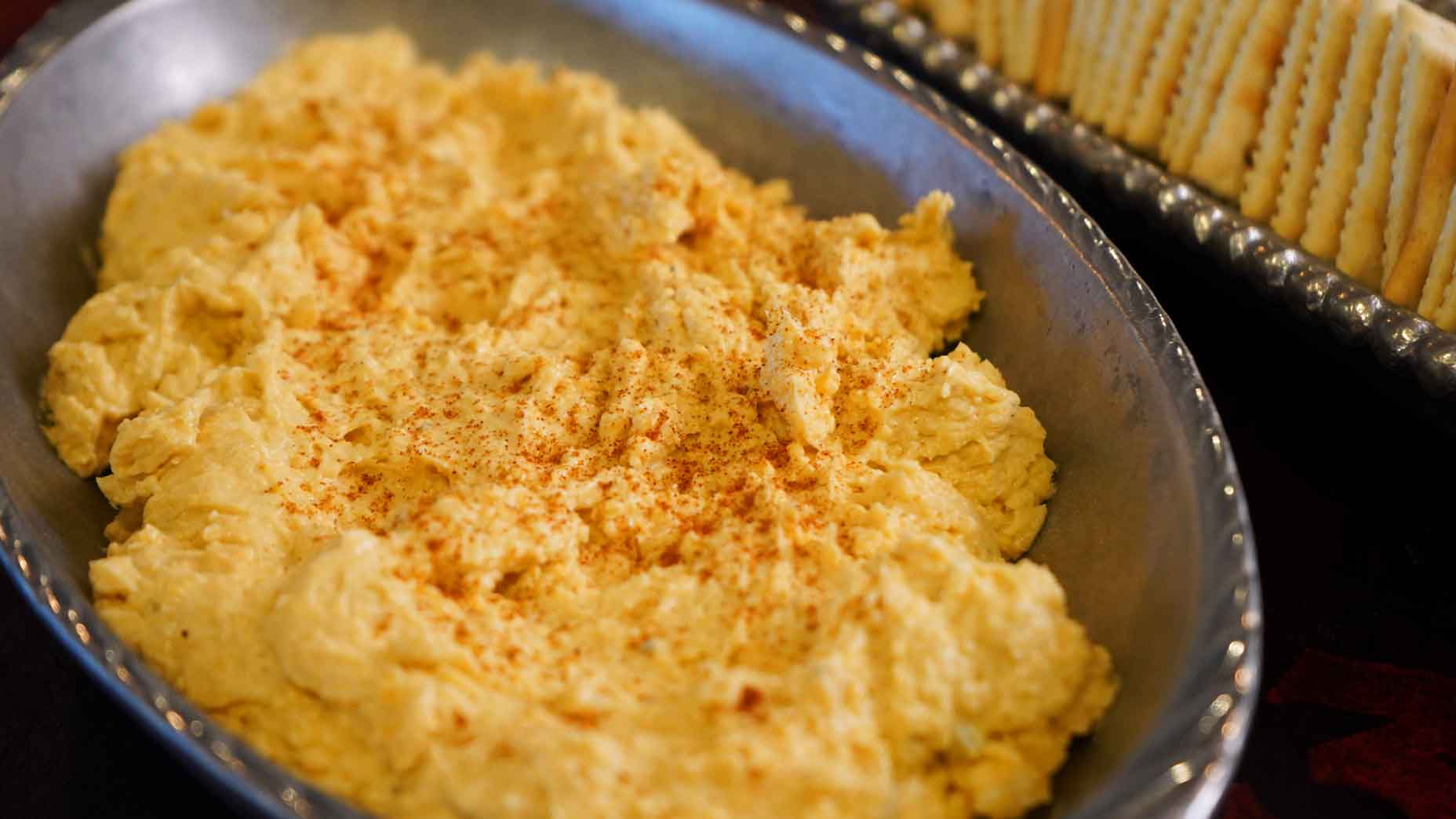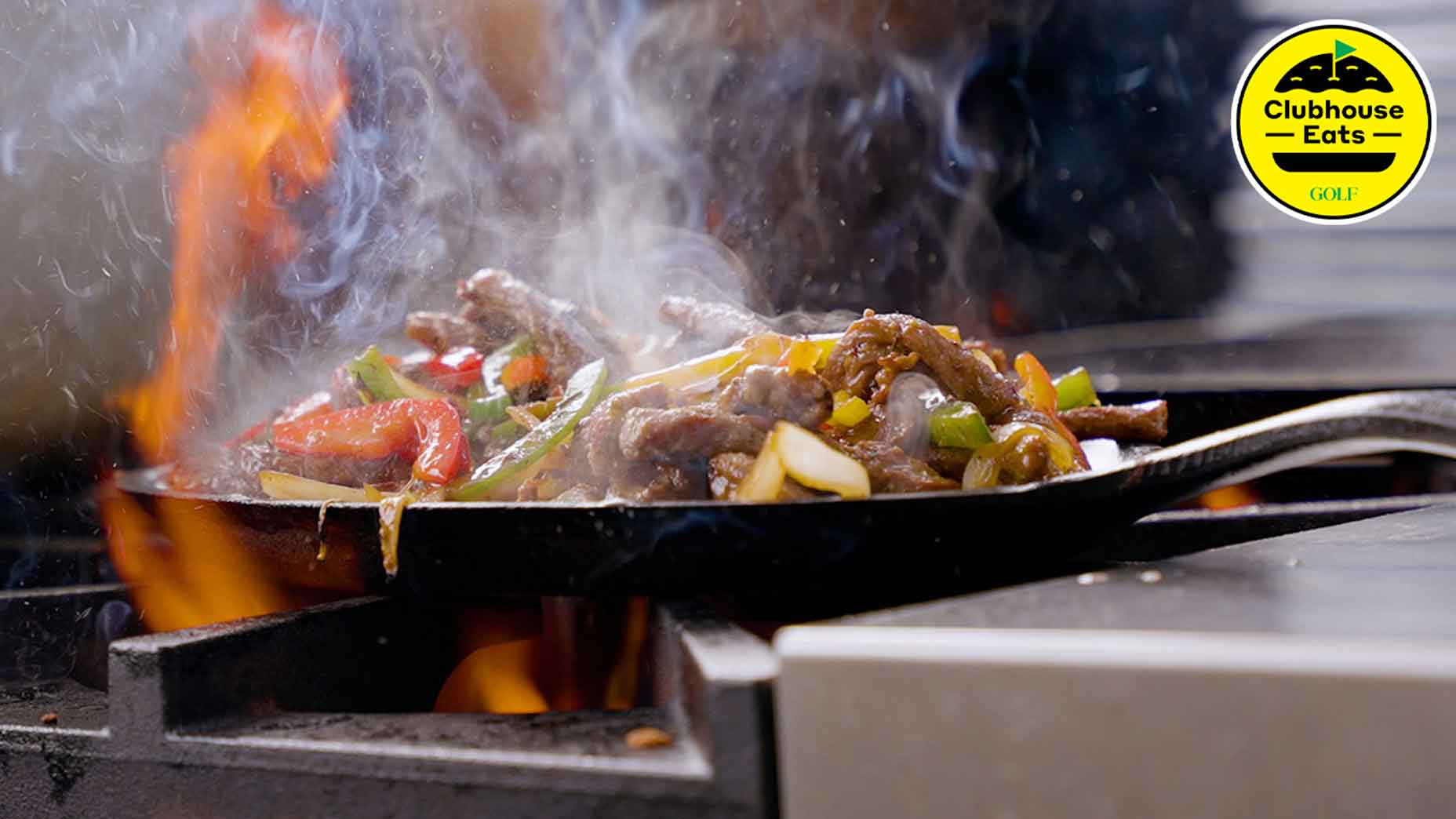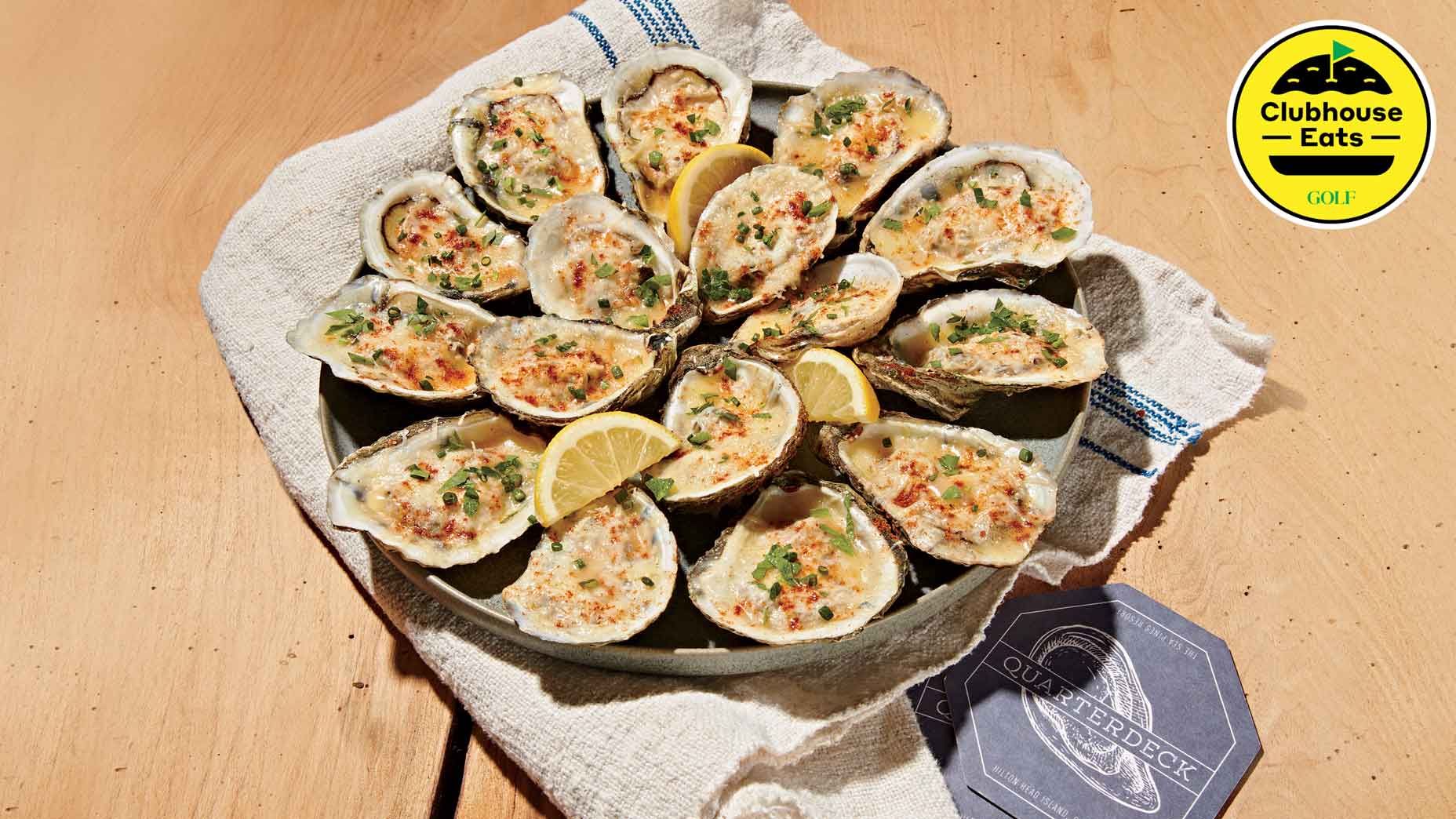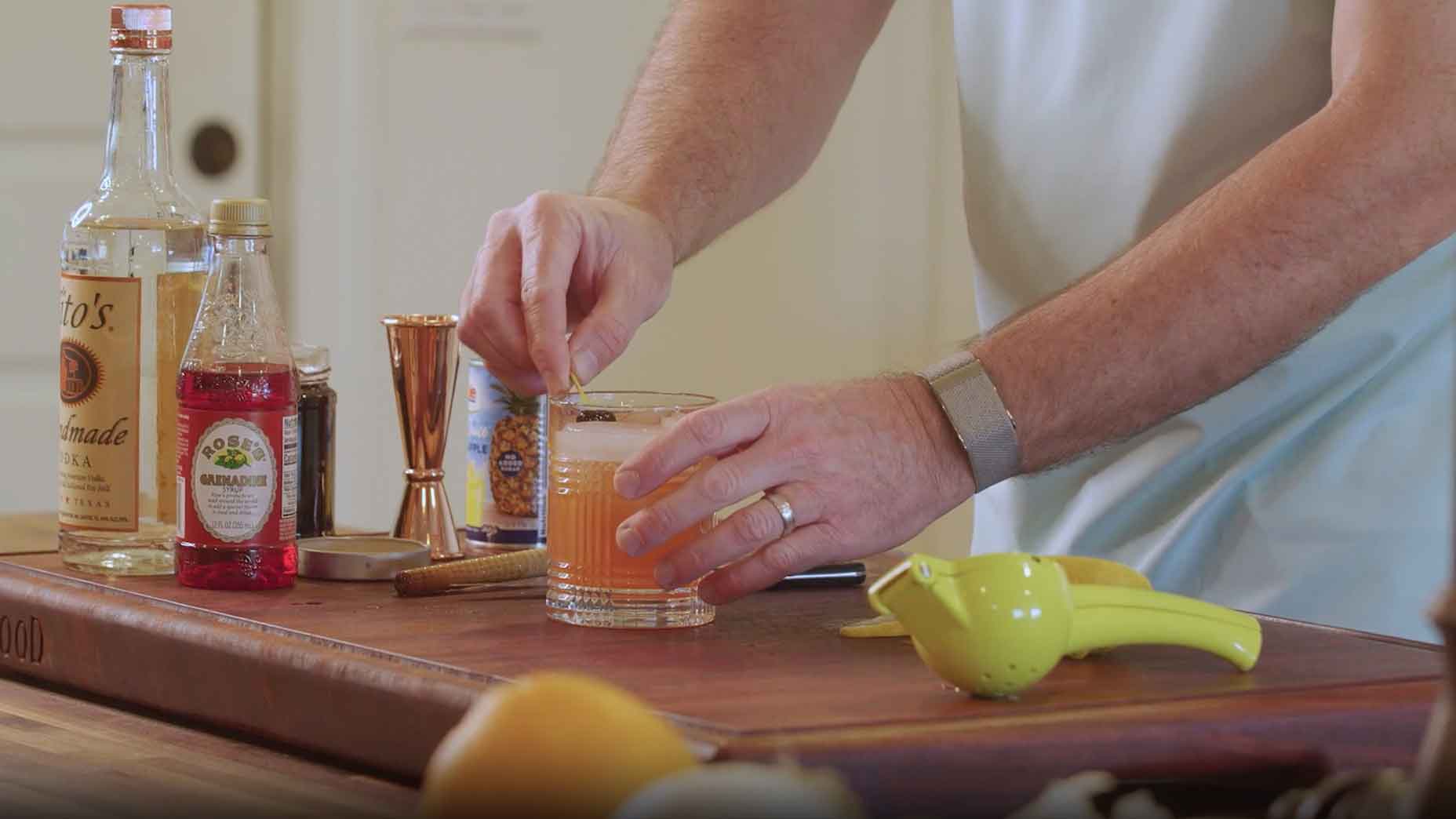Liverpool’s Maggie May’s serves up a decades-old family recipe of a longtime local favorite: scouse
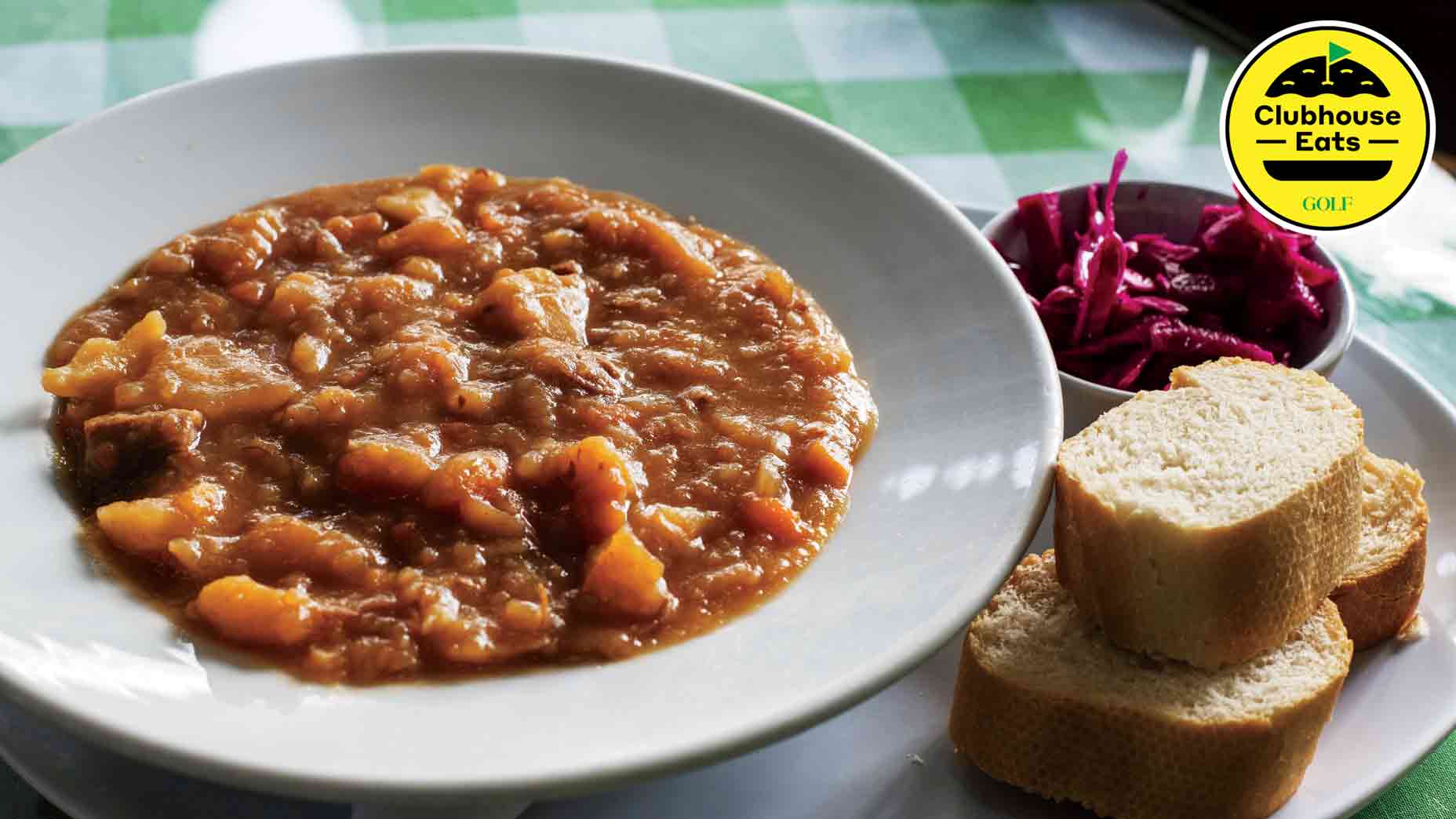
Maggie May's famous scouse. Seconds, anyone?
Angus Murray
Here in the U.S., regional nicknames are commonplace. If you hear the words Hoosier, Buckeye or Tar Heel, you likely know exactly where that person is from — and probably which sports team they root for too.
Regional nicknames are even more prolific in the UK, where a single town may have a half-dozen monikers. Liverpool, the northwest England home of this year’s Open Championship at Royal Liverpool, has a nickname with an origin that is arguably more unique. Liverpool locals proudly identify as “Scouse” or “Scousers.” Where in the world did that name come from? Food, naturally.
The hearty, stew-like dish, “lobscouse,” was a favorite during Liverpool’s heyday as a premier port city, and it remains a local staple to this day. Iterations vary, but foundational ingredients generally include potatoes, carrots, onions, a root vegetable like rutabaga and a protein like lamb or beef. Some describe the dish as a combination of traditional Irish stew and lapskaus, a meat-and-potato-based Scandinavian stew, which further supports scouse’s historical maritime connection.
It’s a dish that can be both difficult to describe and perhaps a bit polarizing. Tour player Tommy Fleetwood, who was born about 20 miles north of Liverpool, in Southport, is somewhat ambivalent about the dish.
“I’ll eat scouse, yeah,” he said at this year’s PGA Championship at Oak Hill. “Scouse is all the good stuff of the leftover dinners, and you put all that together in a pan. It’s kind of a stew.”
As to whether he’ll seek it out when he’s at home, Fleetwood demurred.
“It’s not something I necessarily have, but a lot of people do.”
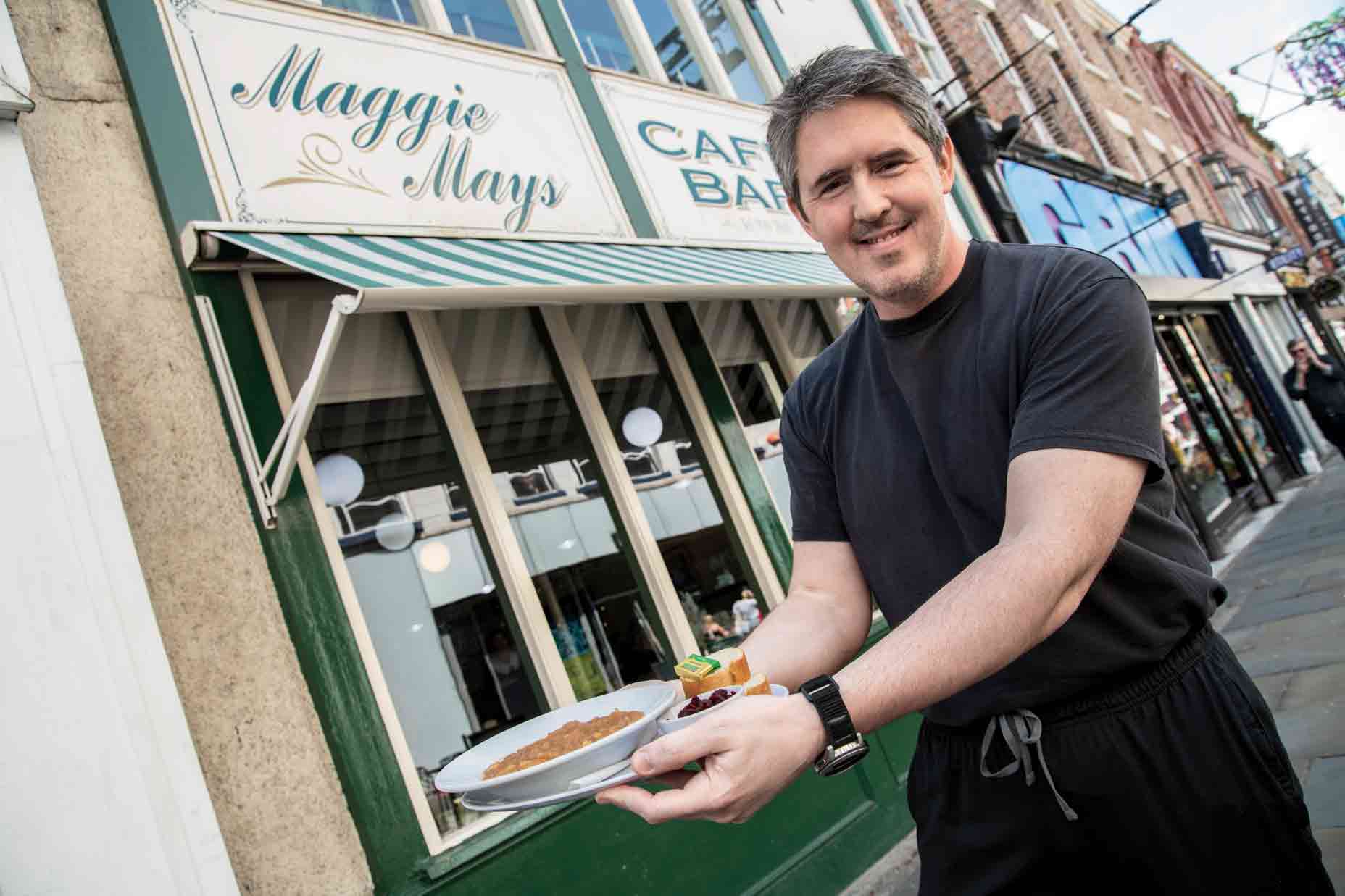
For Liverpool locals and visitors seeking out a meal of traditional scouse, there’s one establishment that stands out among the rest: Maggie May’s, a café in the heart of Liverpool that’s been a mainstay in town for nearly 30 years.
The recipe manager Andrew Lea’s staff uses at Maggie May’s is courtesy of his grandmother, and is thus kept close to the vest, but Lea describes the secret as more about the process than the ingredients. For home cooks looking to replicate the scouse at Maggie May’s, Lea did offer one tidbit of wisdom: Proper scouse takes time.
“After you’ve made it, leave it overnight,” Lea says. “The second day is what makes it. You want it to thicken up, where the potatoes sort of break down, the meat breaks down. It brings you back to when you were a kid and evokes those memories. It’s about passion. The love for your city and the people. The connection that people have for each other. It’s unique.”
With additional reporting by Angus Murray and Jack Hirsh.


